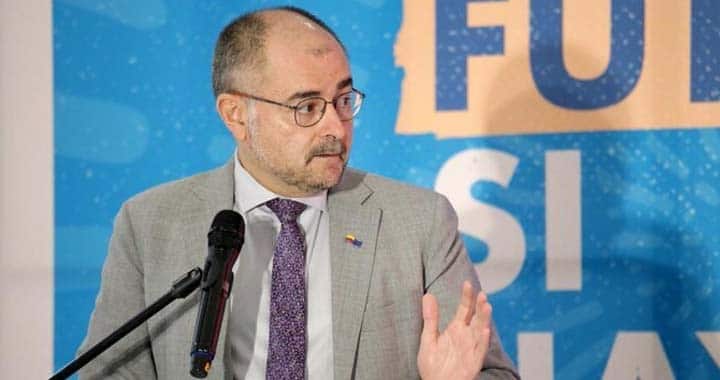The European Union has appointed Gilles Bertrand, a veteran French diplomat, as its new Special Envoy for Afghanistan, at a time when regional and international stakeholders are grappling with renewed security concerns and a deteriorating humanitarian landscape in and around Afghanistan.
Bertrand, who succeeds Tomas Niklasson, brings over two decades of experience in EU foreign policy and international diplomacy. Born in Marseille, he previously served as the EU Ambassador to Colombia and held senior roles in Brussels-led missions, including in Syria and Afghanistan. His previous tenure with the EU delegation in Kabul gives him direct insight into the country’s political and security dynamics.
The European Commission confirmed his appointment on Thursday, stating that Bertrand’s leadership will be key in advancing the EU’s engagement with Afghanistan on critical fronts; including counterterrorism, human rights, humanitarian aid, and regional stability.
His appointment comes amid mounting concern across Europe and the United Nations over the security vacuum in Afghanistan. Diplomatic and security officials have raised alarms over the Islamic State Khorasan Province (IS-KP), warning that the group is exploiting the mass return of Afghan migrants from Pakistan and Iran to expand its recruitment network.
According to Agence France-Presse, more than 2.6 million Afghans have returned to Afghanistan since the beginning of 2024. A significant number are newly displaced, arriving with little or no connection to life under the Taliban. Experts fear this population is increasingly vulnerable to radicalisation by IS-KP, which has gained ground in eastern Afghanistan and among disaffected Taliban fighters.
Hans-Jakob Schindler, former coordinator of the UN Security Council’s monitoring team, cautioned that the group sees these returnees as “a potential recruitment pool.” European diplomats echo that concern, linking the risk to both ideological manipulation and economic desperation.
Closer to home, Pakistan continues to report the involvement of Afghan nationals in cross-border terror incidents. A recent internal assessment shared with allied governments states that Afghan citizens were linked to over 70 percent of recent attacks carried out by the banned Tehreek-e-Taliban Pakistan (TTP), also known as Fitna al-Khawarij. The group operates from Afghan soil and remains a key threat to Pakistan’s northwestern regions.
In response to growing instability, Pakistan, Iran, China, and Russia issued a joint statement on Friday urging the Taliban administration to dismantle all terrorist groups, form an inclusive government, and improve conditions for women, girls, and minorities. The appeal reflects broader regional frustration over Kabul’s failure to deliver on commitments made under the Doha Agreement.
Separately, Qatar has reiterated its commitment to continued diplomatic engagement with the Taliban and support for the Afghan people, even as the United States undertakes a policy reassessment on Afghanistan’s future and its ties with the Taliban.
While the EU’s appointment of Bertrand signals Brussels’ intent to maintain active diplomatic channels, analysts say his tenure will be immediately tested by Afghanistan’s deepening isolation, humanitarian needs, and the rising threat posed by transnational militant groups.





